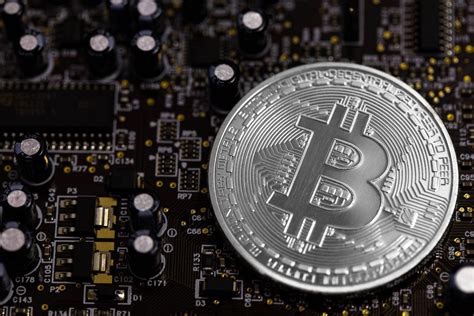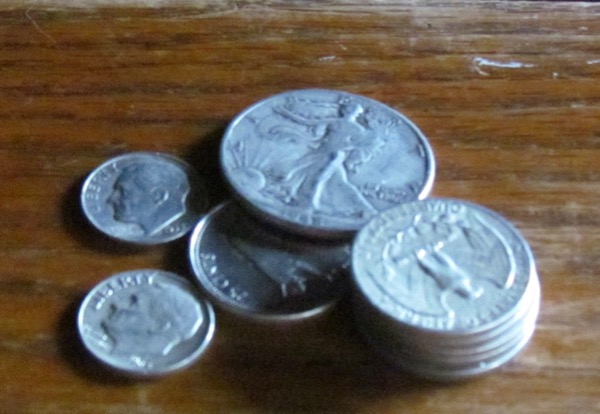A while ago, a customer of my brother’s boat design Website, for which I handle orders, asked if we ever considered accepting bitcoin as payment. While Dave and I are aware of cryptocurrencies such as bitcoin, we’d never looked into them. What we learned upon researching did not encourage us to get involved; since then, I’ve meant to write about it here. Luckily for me, an old friend wrote a lot about it, and with his permission, I’m relying on his words to get my point across.
My friend, Tom Pittman VII, wrote about cryptocurrencies in response to a newspaper article about how Wenatchee, Washington has attracted “data miners” because of their low energy costs.
Tom’s essay appears below (with my edits, and with parenthetical comments or clarifications). He didn’t cite many of his sources; I’m assuming his assertions are accurate.

While definitely not a tangible currency, this is a fairly standard image of a bitcoin (Image: CoinDesk.com).
Bitcoin is absurdly wasteful of natural resources. It takes as much electricity to create a single bitcoin—a process called “mining”—as it does to power an average American household for two years.
A bitcoin has no intrinsic value. It only has value if people think other people will buy it for a higher price—a.k.a. “the Greater Fool theory.”
(The Greater Fool Theory states that the price of an object is determined by irrational beliefs and expectations of market participants. A rational buyer may justify a price under the belief that another party will willingly pay an even higher price. In essence, one may pay a price that appears too high because one may rationally expect that the item can be resold to a “greater fool” later.)
Basically, there are two kinds of bitcoin investors:
1. “Pump and dump” investors who hype bitcoin to raise its price, then dump their investment while the price is high. Ernst & Young estimates that 10 percent of the money from early “pump and dump” investors had been stolen. It’s believed that most heavy users of bitcoin are criminals.
2. “Ill-informed buyers caught up in the spiral of greed.”
The result of these two groups interacting is a massive transfer of wealth from ordinary families to Internet promoters. And “massive” is an understatement—1,500 different cryptocurrencies now register over $300 billion of “value.”
In 2017, there were 902 “initial coin offerings” (ICOs)—in other words there were 902 new bitcoin-like startups. Just months after they started, 418 of them failed (46%) taking millions of dollars of other people’s money with them.
Many bitcoin exchanges have experienced spectacular theft, such as NiceHash and Coincheck. Others took hundreds of millions of dollars in outright fraud, such as Mt. Gox and Bitfunder.
90 percent of all remote hacking is now focused on bitcoin theft.
Tax law requires that every sale of cryptocurrency be recorded as a capital gain or loss, but most bitcoin sellers fail to do so. Consequently, the IRS is now focused on going after them.
Despite the virtues of blockchain, bitcoin is iffy technology. The bitcoin system is limited to five transactions per second. MasterCard can process 38,000 transactions per second!
Transferring $100 from one person to another costs about $6 using a cryptocurrency exchange, and well less than $1 using an electronic check.
David Severen famously said, “If 50 million people say a stupid thing, it’s still a stupid thing.”
No matter how many people hype bitcoin, the truth is that bitcoin has no value except in convincing other people that it does so you can sell it to them for more than you bought it for.

If we’re going to doubt the monetary system, I prefer silver (see Silver Hunting for a Less-Than-Ideal Future). (Photo: Mark A. Zeiger.)
I sort of understand the philosophy behind cryptocurrencies: that government currencies rely on a society’s agreement that a valueless coinage has value. I don’t understand how creating and/or buying into an even more valueless coinage challenges or corrects this problem! I believe we refer to this as “cutting off your nose to spite your face.”
So, while I’d never say this directly to one of my brother’s clients, I have to assume that the correspondent’s question boils down to: “would you consider taking something absolutely worthless in payment for your product?”
I’m stupid, sometimes, but hopefully, I’m not that stupid.

That the bitcoin has no intrinsic value is true but this is also true of all the fiat currencies in the world (including the US dollar). Money only has value while people believe it has value.
Certainly bitcoins could get stolen or their value collapse, but the same is true of the US dollar (remember the “bail in” arguments made in the past where investors carried the costs for banks poor investments).
In the philosophy of “not carrying all your eggs in one basked” having a modest holiding of some other currency (such as bitcoin) could be considered prudent.
Offering to make a purchase in bitcoins in no more a ‘worthless payment’ than offering to do an exchange for some ‘expensive’ piece of art or asking to buy in a foreign currency. This may cause your taxman to raise an eyebrow and look a little closer but it’s not an unreasonable request. Certainly this sort of activity is used in money laundering but that doesn’t mean that it’s money laundering in itself, making a large purchase in cash is similarly unusual/suspicious, does your brother accept cash?
Ekji, As I believe I pointed out in the article, I agree about fiat currencies. What I don’t understand is the argument that since all currencies are fiat, why not create a whole new one? The difference I see is that at least governments back up their currencies a little bit. It would seem to make more sense to invest in precious metals rather than bitcoin.
Dave does accept cash. As the person who fills his orders, I find it somewhat of a headache, but a lot of our clientele won’t deal any other way, and we try to accommodate them. We’ve only ever had the one query about bitcoin, so it hasn’t proved to be much of an issue.
I’ve not looked into bitcoin exhaustively. It didn’t take long to see it was something we’re not interested in dealing with, and that suffices.